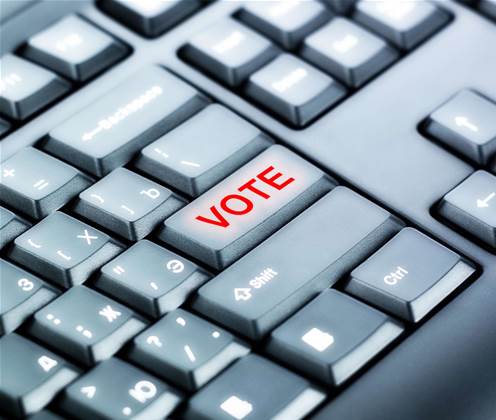The Australian Electoral Commission does not currently have the internal capability to test electronic voting at the next federal election, according to its acting chief Tom Rogers.

In a hearing of the parliamentary committee investigating electoral matters today, Rogers said he was not confident the AEC had the capacity to roll out such a major reform.
“I would be worried by any large-scale trial of electronic voting before the next election,” he told the committee. “We would not have the internal capability now to do that.”
Following the loss of electoral ballots in the 2013 WA senate race, the AEC has been subject to an external inquiry and is undergoing several major internal reforms to address what Rogers called “the single biggest issue to confront the electoral commission in modern history”.
He expressed his grave fear that if a rushed trial were to go wrong “it would destroy the confidence of the community in the AEC”.
“We don’t want to be a in a WA situation again,” he said.
His views contrast with those of the Department of Communications, which yesterday put its support behind the prospect of a limited trial of electronic voting from voter's own devices, which it envisioned taking place during the 2016 federal election.
While apologising for being an archetypal “cautious bureaucrat”, Rogers said the AEC's role first and foremost was to provide Australians with a secure and private place to cast their ballot.
“In this context some of the proposals this committee has already heard have given me concerns,” he said.
But he also conceded that any decision about electoral reform would ultimately sit with Parliament.
“I think that anything is possible and if Parliament asked us to introduce electronic voting we would of course pull out all stops and make it happen,” he said.
Rogers expressed his preference for the continued exploration of less dramatic uses of technology to improve the polling process.
In 2013 the AEC trialled electronic copies of the electoral roll across a number of polling stations, and then in all booths for the 2014 Griffith by-election. In Griffith, the AEC said, the number of people marked off the roll multiple times (indicating they had voted more than once) was reduced by 75 percent.
“This is the next technical area that we would like to head in,” Rogers saidl.
But he also pointed out that until economies of scale could be achieved, the costs of electronic rolls remained too high. Electronic rolls incurred an expense of $1400 each booth, compared to $50 for printed copies on the Griffith trial.
“It did have an impact in the number of multiple marks and provides a greater deal of surety - but if we were to just multiply that across a greater number of polling places the cost would be absolutely prohibitive," Rogers said.
The AEC is not a complete stranger to electronic voting and has already run some limited trials with blind and vision impaired voters, plus serving ADF personnel. Rogers flagged that scientists located in Antarctica could be the next cab of the rank to join the pilot program.


_(28).jpg&h=140&w=231&c=1&s=0)
_(20).jpg&h=140&w=231&c=1&s=0)

.png&h=140&w=231&c=1&s=0)



_(26).jpg&w=100&c=1&s=0)

 iTnews Executive Retreat - Security Leaders Edition
iTnews Executive Retreat - Security Leaders Edition












_(1).jpg&h=140&w=231&c=1&s=0)



